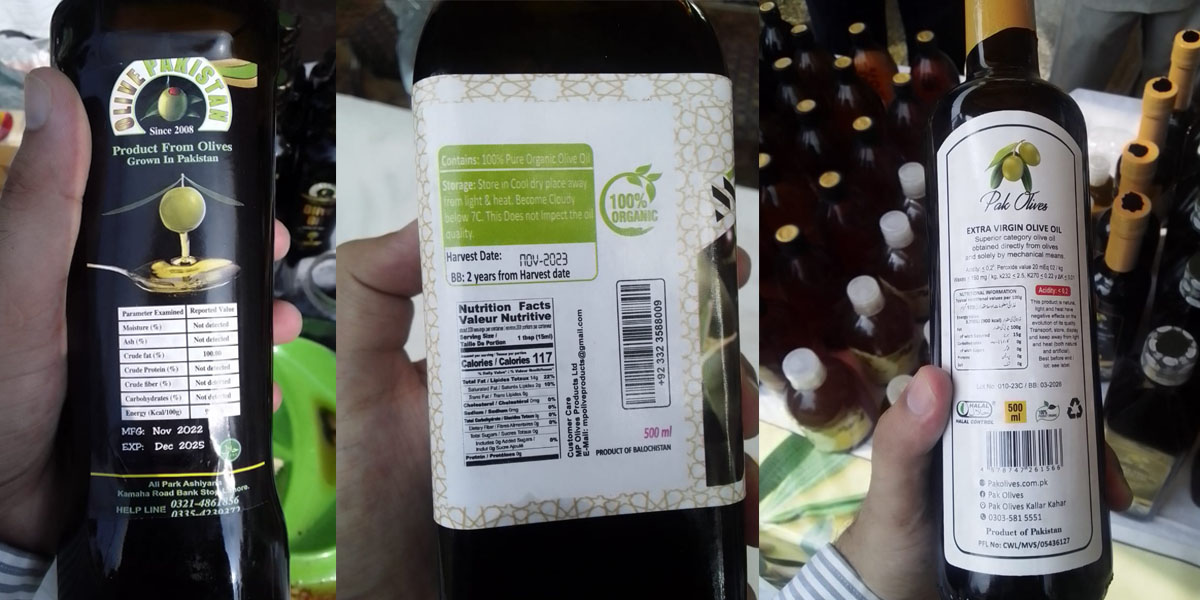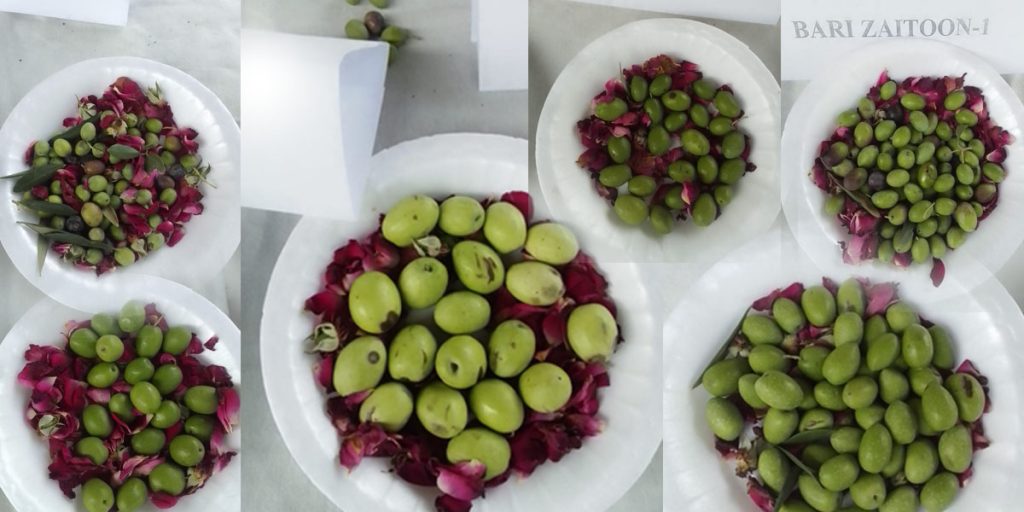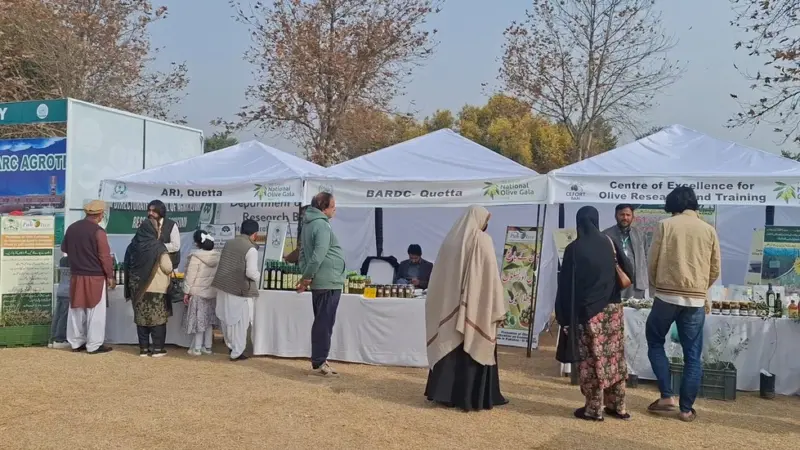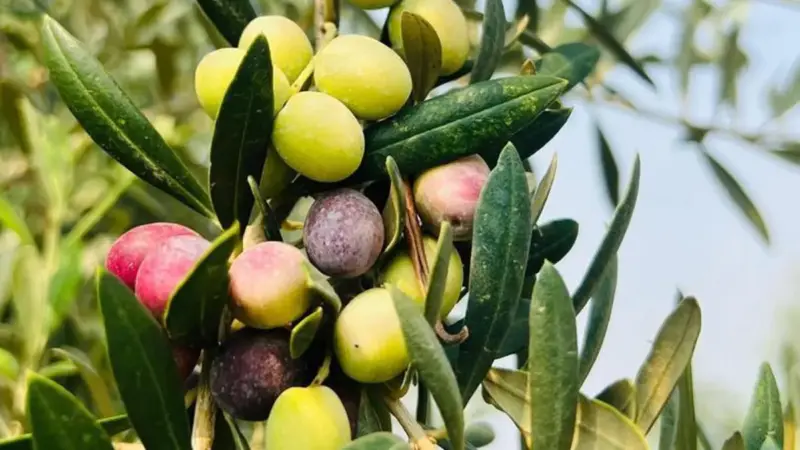Pakistan’s Olive Industry: A Story of Hope and Hurdles

On September 29, 2024, Lahore hosted its annual Olive Festival, providing a platform for olive farmers nationwide to exhibit their products. During our visit to the festival, we had the opportunity to engage with local growers, government officials, and community members, gaining valuable insights into the evolving olive industry in Pakistan and its future prospects.
Pakistan currently imports edible oils worth billions of dollars annually. Given that the country is primarily agricultural, there is significant potential for self-sufficiency in edible oils, including olive oil, much like other agricultural commodities. In recent years, the Pakistani government, along with farmers and local and international NGOs, has intensified efforts to position the country on the path to self-sufficiency in edible oils, particularly olive oil.
Key Insights into Pakistan’s Olive Oil Industry
Pakistan boasts substantial potential in olive oil production. According to the Barani Agricultural Research Institute (BARI), the nation’s leading olive research center, approximately 10 million acres of land is suitable for olive cultivation. To date, 5 million olive trees have been planted. Numerous regions in Pakistan have been designated as conducive for olive farming, with the Pothohar region—stretching from Chakwal in Punjab to Attock in Khyber Pakhtunkhwa—leading the way. Recently, an additional 6.5 million acres in the Cholistan region has also been identified as viable for olive growth, an area previously deemed unsuitable. This transformation is aided by the efforts of farmers like Muddassar Hussain, who are pioneering olive cultivation particularly in Bahawalpur. Moreover, parts of Balochistan are recognized for their suitability for olive farming. Backed by governmental support and NGOs, many farmers in this largest province are establishing small to medium-sized farms. Notably, Balochistan and Khyber Pakhtunkhwa also have a significant number of wild olive trees, which contribute to olive oil production.
Highlights from the Annual 2024 Olive Festival
At the festival, we visited a stall featuring olive varieties showcased by BARI officials. Among the top varieties on display were: Gamlik, Manzanilla, BARI-Zaitoon-2, BARI-Zaitoon-1, Arbosana, Earlik, Hamdi, Hojiblanca, and Cheitina. All these varieties have been tested and approved for cultivation in Pakistan.

Current Olive Farms in Pakistan
Several olive farms of varying sizes are operational across the country. According to BARI, the following farms are currently active: Al-Zaitoonia, Siddiqui Olive Store, Green Olivier, Unique Valur Pvt Ltd, Pak Olives, Olive Pakistan, Bostan Olives, Har Ghar Zaitoon, Lawa Olives, Bagh-e-Zaitoon, Al-Noor Farms, Izhar Farms, Tajjal Attock, Olive Zone Gujrat, and Pothohar Olive Oil. This list is provided by BARI, as these farms operate under the supervision of Pakistan’s only government-backed research institution. Most of these farms are family-owned businesses affiliated with agriculture or cooperatives of small farmers committed to advancing olive cultivation in Pakistan. Their enthusiasm and dedication are evident as they strive to establish sustainable enterprises, often relying on their resources while awaiting investment and financial support from local and international stakeholders.
Related: Xylella Fastidiosa: A Billion-Euro Crisis Brewing in Europe’s Olive Groves
Challenges Facing Olive Farmers in Pakistan
Despite the promising potential, olive growers in Pakistan encounter numerous challenges. One significant issue is limited resources; farmers often deplete their savings to maintain their operations. For instance, during low-yield years like 2023, many farmers were forced to bear their operational costs from personal funds due to decreased income from olive products. Therefore, financial backing is crucial for survival.
Additionally, a shortage of oil extraction machinery is a pressing concern. While institutions like BARI offer oil extraction services at a competitive rate of $0.36 per liter, the limited number of machines results in long waiting times for farmers needing to extract their oil. The need to travel significant distances to access extraction facilities exacerbates these delays, leading to fruit wastage and financial losses.
Another obstacle is the scarcity of glass bottle packaging. Currently, only a few brands can afford glass bottles, which they import from China, as local availability is severely lacking. Many others resort to using plastic bottles or sell their oil directly at extraction facilities, negatively impacting profit margins and raising concerns regarding industry practices.
We remain hopeful that in the coming years, Pakistan will fortify its olive industry and empower small growers, enabling them to realize substantial profits from their farms. As the olive oil sector flourishes, there is potential for Pakistan not only to meet its domestic oil demand but also to become a player in international olive oil exports.






